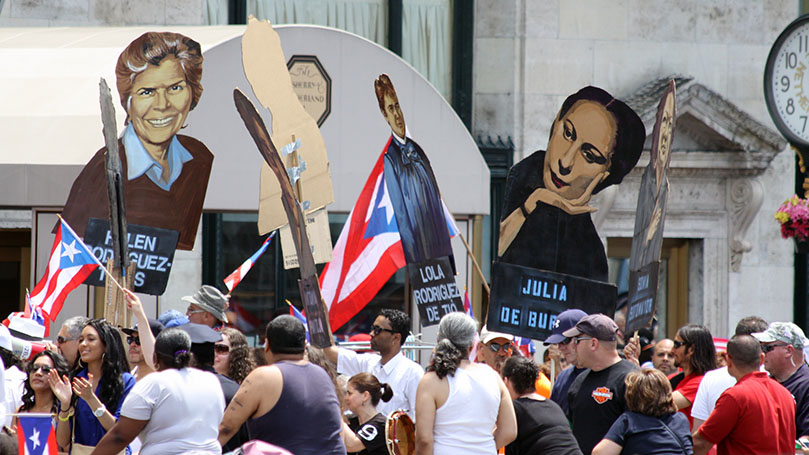
The fight for bilingual education put on by the Mexican Americans and Puerto Rican peoples alike is a triumph to highlight. Individuals making up the whole of the movement are the keystones to keeping a movement and history alive. In particular, Evelina L. Antonetti, a civil rights activist who helped mostly Puerto Rican children with school environments and their education, has left a prominent legacy in education equality in the Bronx and other cities alike.
Nydia Velazquez, a Puerto Rican scholar and activist involved in fights for sanitation in schools, bilingual education, and demilitarization of Vieques in the early 2000s and much more, embodies the power of political action for social justice. Velazquez was later the first Puerto Rican women to be elected to Congress in 1993.
In congruence with the American civil rights movement, the civil rights movement amongst Mexican Americans and Puerto Ricans in the 60s is still at the forefront of policy-making and the solidarity we experience today, in 2018.
A common tactic systematically used in my Puerto Rican community is the instilling of fear to be categorized under the same subgroup as African Americans. This is also apparent amongst the African American communities.
In response to community protests and agitation, private foundations and government agencies provided funds and official recognition and legitimacy to Mexican American and Puerto Rican demands. One of the broadest and most symbolic improvements was federal recognition of Mexican Americans as an identifiable ethnic group. With the election of Texan Lyndon B. Johnson to the U.S. Senate and his rise to the presidency after President John F. Kennedy’s tragic assassination, Mexican Americans hoped that their needs would be recognized along with African Americans under the many programs created for both: the war on poverty and affirmative action are noteworthy in this regard.
An early significant piece of legislation was the U.S. Congress’ passage in 1968 of the Bilingual Education Act (BEA), the first piece of federal legislation that recognized the needs of Limited English Speaking Ability students. Initially, participation in BEA by school districts was voluntary. With the 1974 U.S. Supreme Court case, Lau v. Nichols, however, the provision of educational services for english language learners, of any nationality or ethnic background, was mandated. (American Latino Theme Study, Victoria-Maria McDonald)
We, black and brown people,will yield strength in our masses. The very real discrimination in brown families in favor of more European features and against the features associated with our black ancestors has brought great turmoil in the minds and lives of the black and brown youth: this is unhealthy to me and to you.
The Mexican American Legal Defense Education Fund was created in 1968 with assistance from the NAACP. Similarly, the Puerto Rican Legal Defense Education Fund was created in 1972 and centralized community activists, providing more resources and funds to hire lawyers and file lawsuits against schools and other institutions that were denying latinos suitable educational opportunities.
Yet, today Dreamers are faced with threats of deportation and discrimination in education. Today, we are told to speak English in order to be assisted. Today, in Puerto Rico, where the native language is Spanish, English speakers and she who has a fairer complexion than the next, is given a permit to start a business and receive running water over those who don’t.
Today, teachers are displaced en masse, in Puerto Rico. On the island women comprise the majority in the rate of the unemployed. Today, among Puerto Ricans who were forced to New Haven, CT, 10 percent of the whole in the country, consist of families whose husbands are off working while the wife, a business woman and degree holder stays home to care for the children and have no bilingual after school programs to send their children to: a now foreign tradition in this family, where the woman was the primary breadwinner.
The human rights crisis concerning the overall state of Puerto Rico after hurricanes Irma, Jose and Maria has, yet again, failed our brown and black women and black and brown brothers. This takes a toll on the psychological effects in Puerto Ricans and women, in particular. United we stand, divided we fall.
Imagine: Creative Commons 3.0


 Join Now
Join Now